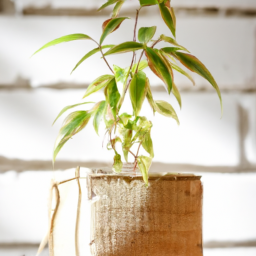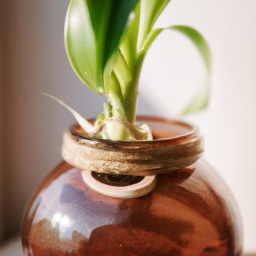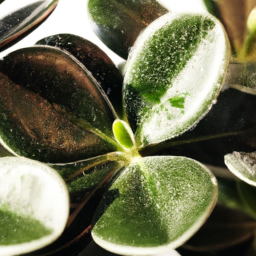
Are you looking to bring a touch of nature into your home or office? Indoor plants benefits go beyond just adding a pop of green to your space. Not only do indoor plants brighten up a room and improve air quality, but they also have numerous health benefits for both your physical and mental well-being. In this blog post, we will explore the many advantages of incorporating indoor plants into your indoor spaces and how they can enhance your overall quality of life. So, whether you have a green thumb or are a novice plant parent, read on to discover why indoor plants are a must-have for any indoor environment.
Health Benefits of Indoor Plants
Improved Air Quality
One of the most well-known benefits of having indoor plants is their ability to improve air quality. Plants absorb carbon dioxide and release oxygen through the process of photosynthesis, which helps to purify the air in your home. In addition, plants can also remove harmful toxins such as formaldehyde, benzene, and trichloroethylene from the air, making it healthier for you to breathe. By having indoor plants in your home, you can reduce the risk of respiratory problems and allergies, and create a more pleasant living environment.
Studies have shown that indoor plants can also help to increase humidity levels in your home, which can be beneficial for your respiratory system. Dry indoor air can lead to dry skin, irritated sinuses, and other health issues, but having plants can help to maintain optimal humidity levels and improve your overall well-being.
Some of the best indoor plants for improving air quality include spider plants, peace lilies, snake plants, and pothos. These plants are not only easy to care for, but they are also effective at removing toxins from the air and creating a healthier living space for you and your family.
Stress Reduction
Another benefit of having indoor plants is their ability to reduce stress and improve your mental well-being. Studies have shown that being around plants can help to lower blood pressure, reduce anxiety, and promote relaxation. The presence of greenery in your home can have a calming effect on your mind and body, helping you to feel more at ease and less stressed.
In addition, caring for indoor plants can also be a therapeutic activity that allows you to focus on something positive and rewarding. Watering, pruning, and tending to your plants can be a meditative practice that helps to distract you from the stresses of daily life and promote a sense of mindfulness and well-being.
Plants such as lavender, aloe vera, and jasmine are known for their stress-relieving properties and can be great additions to your indoor garden. By incorporating these plants into your home, you can create a peaceful and relaxing environment that promotes mental clarity and emotional balance.
Boosted Immunity
Indoor plants can also help to boost your immune system and keep you healthy. Plants release phytoncides, natural airborne chemicals that have antimicrobial properties and can help to reduce the spread of airborne viruses and bacteria. By having plants in your home, you can create a natural defense system that protects you from illnesses and promotes overall health.
In addition, studies have shown that being around plants can help to speed up recovery times from illnesses and surgeries, as well as reduce the symptoms of conditions such as headaches, coughs, and fatigue. The presence of plants in your home can help to strengthen your immune system and improve your resilience to common health issues.
Plants such as eucalyptus, rosemary, and chamomile are known for their immune-boosting properties and can be beneficial additions to your indoor garden. By incorporating these plants into your home, you can create a healthy and supportive environment that enhances your well-being and vitality.

Air Purifying Benefits of Indoor Plants
Introduction
Indoor plants are not only aesthetically pleasing, but they also provide a myriad of health benefits. One of the most significant advantages of having indoor plants is their ability to purify the air in your home. In today’s world, where pollution levels are on the rise, having indoor plants can help improve the air quality in your living space. In this article, we will explore the air-purifying benefits of indoor plants and how they can positively impact your health.
How Indoor Plants Improve Air Quality
Indoor plants are natural air purifiers that can remove harmful toxins from the air. They do this through a process called phytoremediation, where plants absorb pollutants through their leaves and roots. Common indoor plants such as spider plants, peace lilies, and snake plants are known for their ability to filter out toxins like formaldehyde, benzene, and trichloroethylene. These plants act as natural air filters, helping to reduce indoor air pollution and create a healthier living environment.
In addition to removing toxins from the air, indoor plants also release oxygen during photosynthesis, which can help improve air quality and increase oxygen levels in your home. This can have a positive impact on your overall health, as higher oxygen levels can improve concentration, reduce stress, and boost your immune system. By incorporating indoor plants into your living space, you can create a healthier and more vibrant environment for yourself and your family.
Indoor plants also have the ability to humidify the air, which can be beneficial, especially during the dry winter months. Plants release water vapor through a process called transpiration, which can help increase humidity levels in your home. This can help alleviate dry skin, respiratory issues, and other health problems caused by low humidity levels. By adding indoor plants to your living space, you can create a more comfortable and healthier indoor environment.
Choosing the Right Indoor Plants for Air Purification
When selecting indoor plants for air purification, it is essential to choose plants that are known for their air-purifying qualities. Some of the best plants for improving indoor air quality include the spider plant, peace lily, snake plant, aloe vera, and Boston fern. These plants are easy to care for and can thrive in indoor environments, making them ideal choices for air purification.
When placing indoor plants in your home, consider placing them in rooms where you spend the most time, such as the living room, bedroom, or home office. This will help maximize the air-purifying benefits of the plants and create a healthier living environment. Additionally, make sure to water and care for your plants regularly to ensure they remain healthy and effective at purifying the air.
In conclusion, indoor plants offer a wide range of health benefits, including air purification. By incorporating indoor plants into your living space, you can improve air quality, increase oxygen levels, and create a healthier indoor environment for yourself and your family. Consider adding some air-purifying plants to your home today and experience the many benefits they have to offer.

Productivity Benefits of Indoor Plants in the Workplace
Indoor plants have become increasingly popular in workplaces due to their numerous benefits. Not only do they add a touch of greenery to the office environment, but they also have been shown to have a positive impact on productivity. In this article, we will explore the productivity benefits of having indoor plants in the workplace.
Reduced Stress and Anxiety
One of the key benefits of indoor plants in the workplace is their ability to reduce stress and anxiety among employees. Studies have shown that being around plants can help lower cortisol levels, which is the hormone associated with stress. The presence of greenery in the office can create a calming and soothing environment, helping employees feel more relaxed and focused on their work.
Furthermore, indoor plants have been found to improve air quality by removing toxins and releasing oxygen, which can contribute to a healthier and more pleasant work environment. This cleaner air can lead to improved concentration and cognitive function, ultimately boosting productivity in the workplace.
In addition, caring for plants can be a therapeutic activity for employees, allowing them to take a break from their work and focus on something different. This can help reduce burnout and improve overall mental well-being, leading to increased productivity and job satisfaction.
Enhanced Creativity and Innovation
Another benefit of having indoor plants in the workplace is their ability to enhance creativity and innovation among employees. Research has shown that being in a green environment can stimulate the brain and improve cognitive function, leading to increased creativity and problem-solving skills.
Plants can help create a more inspiring and visually appealing workspace, which can spark new ideas and encourage out-of-the-box thinking. Employees surrounded by greenery are more likely to feel inspired and motivated, leading to a more dynamic and innovative work culture.
Furthermore, indoor plants can help create a sense of connection to nature, which has been shown to improve overall well-being and mental health. This connection to the natural world can inspire employees to think more creatively and work collaboratively, ultimately leading to a more productive and innovative workplace.
Improved Morale and Teamwork
Lastly, indoor plants in the workplace can help improve morale and foster a sense of teamwork among employees. The presence of greenery can create a more inviting and welcoming atmosphere, encouraging employees to feel more connected to their surroundings and to each other.
Plants can serve as a common point of interest and conversation among colleagues, helping to break the ice and build relationships. This sense of camaraderie can lead to improved communication, collaboration, and teamwork, ultimately enhancing productivity and job satisfaction in the workplace.
In conclusion, the benefits of indoor plants in the workplace are numerous and can have a significant impact on productivity, creativity, and overall well-being. By incorporating greenery into the office environment, employers can create a more positive and productive work culture that benefits both employees and the company as a whole.
Crisp Recap
Indoor plants do more than just add a touch of green to your living space – they also come with a host of health benefits that can improve your overall well-being. Studies have shown that indoor plants can help purify the air by removing toxins and increasing oxygen levels, which can lead to better respiratory health and reduced stress levels. In addition, having plants in your home can boost your mood and productivity, as they have been found to have a calming effect and improve concentration.
Not only do indoor plants have physical and mental health benefits, but they also have aesthetic advantages. They can add a pop of color and texture to your home decor, making your space feel more inviting and lively. With a wide variety of plant options to choose from, there is sure to be a plant that fits your style and preferences. So next time you’re looking to spruce up your living space, consider adding a few indoor plants to reap the many benefits they have to offer.
Check Out These FAQs:
Q1. What are the benefits of having indoor plants?
A1. Indoor plants offer numerous benefits, such as improving air quality, reducing stress levels, enhancing mood, increasing productivity, and adding a touch of nature to indoor spaces.
Q2. Which indoor plants are best for improving air quality?
A2. Some of the best indoor plants for improving air quality include peace lilies, spider plants, snake plants, pothos, and rubber plants. These plants are known for their ability to remove toxins from the air.
Q3. How do indoor plants help reduce stress levels?
A3. Indoor plants have been shown to reduce stress levels by promoting relaxation, improving focus, and creating a calming environment. The presence of plants can also help lower blood pressure and heart rate.
Q4. Can indoor plants improve indoor air quality?
A4. Yes, indoor plants can improve indoor air quality by absorbing toxins and pollutants from the air through a process called phytoremediation. They can help remove harmful chemicals such as formaldehyde, benzene, and trichloroethylene.
Q5. How can indoor plants enhance productivity?
A5. Indoor plants can enhance productivity by reducing fatigue, increasing concentration, and improving overall well-being. Studies have shown that having plants in the workspace can lead to higher levels of productivity and creativity.
Dr. Olivia Green is a botanist with over two decades of experience in indoor plant cultivation. She holds a Ph.D. in Plant Biology and has dedicated her career to researching plant behavior in controlled environments. Dr. Green is passionate about helping plant enthusiasts master the art of indoor gardening through her extensive knowledge and practical insights.


